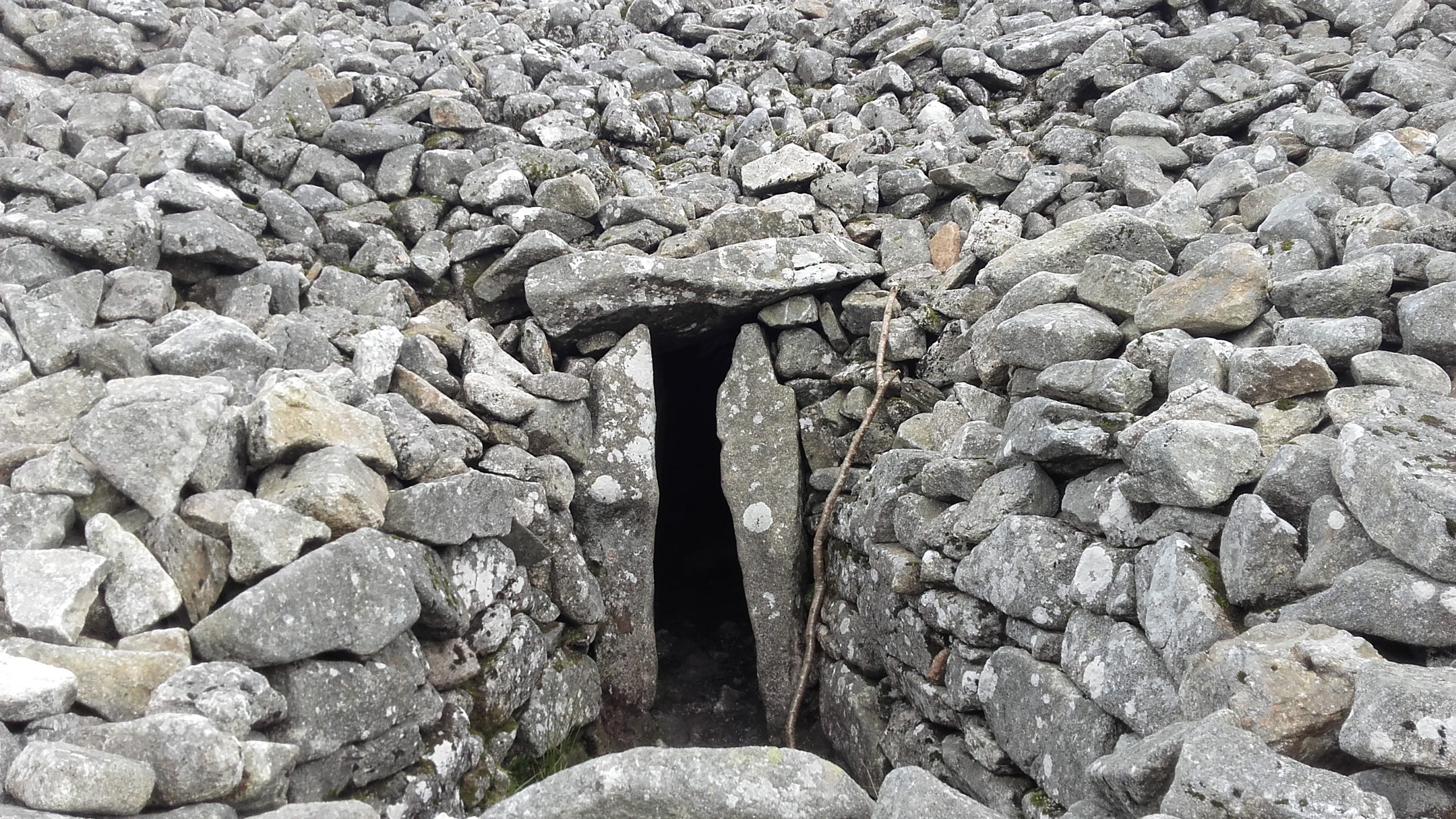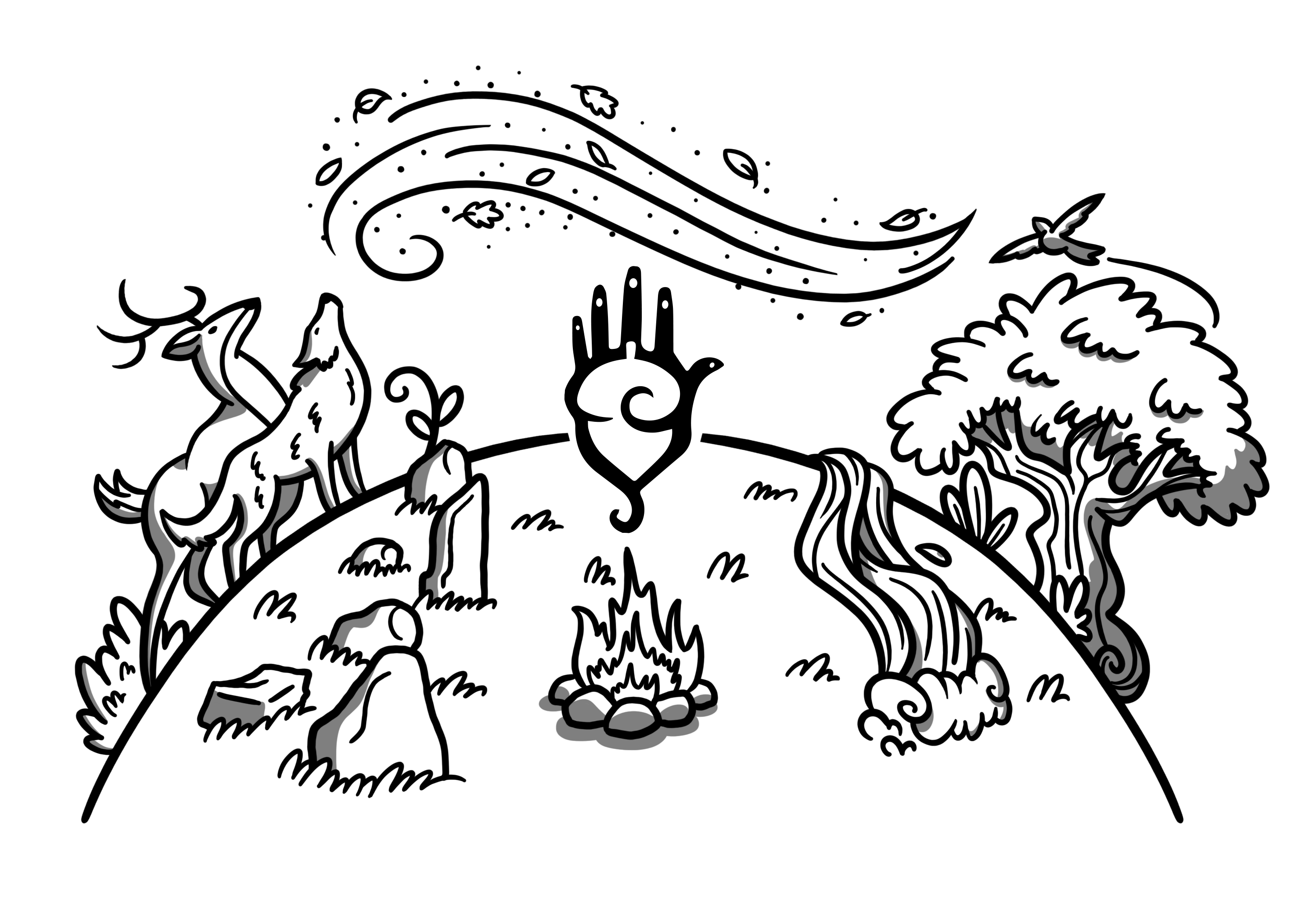Decolonization in Ireland: unravelling whiteness & remembering the land – online course

What is on offer?
Lifetime access to a self-paced online course. Content includes pre-recorded lectures (captions available), extensive supporting learning materials (book chapters, activist essays, academic articles, podcasts, videos), and suggested practical exercises. Community Discord server to discuss course material, and more.
Availability
Available any time to complete at your own pace. Suggested fee: €100 – sliding scale and ‘pay it forward’ options available, scroll to bottom of page. Free access available to those without means, please contact me directly.
Course overview
What does ‘Irishness’ mean? How was this ‘identity’ created? What would it look like to unravel it?
Why are whiteness and coloniality something we should be concerned about in efforts to reconnect with the land and ancestral animist lifeways?
What would it mean to re/claim ‘indigeneity’ as modern people in Ireland today? Can or should it be done? What can the desire to claim it tell us?
In what ways can we respond to Ireland’s complex position in colonial histories and systems, having been both colonised and participating in colonialism?
What can and does the process of decolonization actually look like in the Irish context (being aware of the word’s misuse as metaphor)?
These are some of the questions we will explore throughout this course, and more.
Ireland never decolonized. Two states were formed on the island in 1922 and created divergent societal paths. Neither undertook a process of decolonization. Both societies left colonial institutions, economic logics, and legal structures in place, while on deeper levels colonial modes of being, knowing, sensing, and relating have remained normalised and intact into the present. Even a new state imagined as a ‘united’ Ireland that would bring the British-occupied ‘northern’ state into the political fold with the formally independent ‘southern’ state would mean little without wider social and cultural reckonings about how Irish modernity has generated huge inequalities and further destroyed the land. Even more vitally there would need to be a reckoning with what it means to be colonised on those deeper levels. Throughout popular media it feels like we’re inundated with unsteady declarations, shallow inquiries, and uneasy jokes about what it really means to be ‘Irish’, and yet it seems to perpetually spin in a state of existential confusion beyond everyone’s grasp.
What does our colonised state of being mean for us then if we take Dwayne Donald’s definition of colonialism as “an extended process of relationship denial”? It raises many questions and simultaneously points to wounds that need healing. To whom or what have we been in denial of relationship with? What have the effects of this denial been? What would it mean to step out of systemic and culturally sanctioned states of denial?
The modern/colonial way of relating to anything imagined as being outside the fictive enclosure of the individuated ‘self’ is one based on systemic and cultural habits of extraction and consumption that rely on historically unprecedented levels of violence against human beings, more-than-human beings, and Earth. This colonial mode of being and knowing was implanted in Ireland through centuries of violence, but we have since made it our own and scaled up the project of modernity/coloniality. We suffer profound amnesia about what once existed, accepting colonial narratives that our ancestors were ‘backwards’ and that what exists now is the only way ‘forward’. Through our amnesia we’ve lost any sense of possibilities of other ways of being and relating in reverence and respect of life, and maybe it is this realm of possibilities that the essence of the frantic urge to define ‘Irishness’ is actually compelling us towards. With a decolonizing outlook, we would long ago have stopped and asked how we could proceed with the normalisation of relationship denial and any responsibility within those relationships for so long.
This course dives into some of the predicaments of whiteness, the coloniality of being, and situates the coordinates of a uniquely ‘Irish’ brand of colonialism in Ireland today, interrogating how we got to this point and asking what it might mean to seek decolonial horizons at this historical juncture. It is an invitation to pause and sit with the difficult, uncomfortable, and contradictory things that trouble us while gesturing towards and beginning a re-embodiment of an ‘otherwise’ that is not foreclosed by the violence of separability.
Course structure
The course is divided into 5 modules. Each module contains a pre-recorded video lecture, plus extensive supporting learning materials and suggested practices.
- Module 1: What is decolonization?
- Module 2: Considering our ‘wakes’ – a decolonial view of history and time
- Module 3: Entanglements and epistemicide: the coloniality of knowledge and power
- Module 4: The coloniality of Irish society, culture, and identity
- Module 5: Decolonization in practice: building collective autonomy; returning to the land; anti-colonial resistance
What to expect
- The course is in a self-paced format with permanent life-time access.
- We have a community Discord server with space for participants to discuss the material as they encounter it. I will also have some availability to participate in these discussions.
Who is this course for?
- If you’ve read this far and you’re interested then it’s for you. You don’t need to be Irish or living in Ireland.
“This is the course I didn’t know I needed. Jimmy helped me explore more about myself, my roots and Ireland’s place in a colonial world. This course has left me with a sense of purpose and connection I have always looked for.”
“I very much recommend this course to any who are looking to make meaning of any level of soul void they feel within themselves, who want to connect themselves with the impact of this islands history and who want to deepen their awareness and capacity to live in a humane way.”
“In so many ways this course has been the missing piece of the puzzle on my own journey grappling with issues of racism and decolonisation in Ireland. The literature Jimmy has provided and the space for connection and conversation he has created have been so incredibly grounding. I would very much recommend this course to anyone on a similar journey as it has been a truly transformational experience for me.”
Fee and sign up
Suggested fee: €100*. Click for sign up below.
- * Lower sliding scale option of €65 available below. Or, if you wish to ‘pay it forward’ and contribute a higher fee of €300, select the option below or let me know if you want to contribute more than that. If you cannot afford any fee at all, I will give you free access – please email.
- Two-part payment plan available on request. Course content will not be made available to you until full payment is received.
- I kindly ask that you consider the course fee as a gift contribution that makes the sharing and development of this important work continually possible, rather than as a consumer purchase.
- Email [email protected] with any queries. Access will be emailed to you ASAP after purchase.
Refund policy
I kindly request that you only sign up for this course if you are sure that it is right for you. This policy is in place to care for the time, effort, energy, and emotional labour it has taken and continually takes me to formulate, reformulate, deliver, and manage this course.
Due to this request, there are no refunds given except in rare circumstances.
© Jimmy Billings

